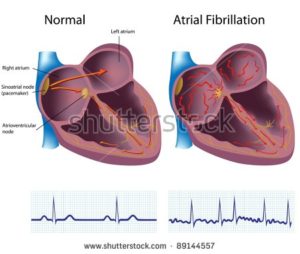Leave a Comment:
6 comments
Had ablation. Symptom free for several weeks. Cardiologist wants me to get watchman. Why do I need that if I stay symptom free. Thanks so much. Iam age 76 with hcontrolled hypertension and sleep apnea. No other health issues
ReplyHi Malcom-
I am no expert but my understanding is that your Cardiologist is concerned about your increased risk of a stroke caused by your Afib. Yes, because of your ablation you are symptom free. I take this to mean your heart rythm is normal and therefore you figure you do not have an increased risk of stroke?
You should ask your Cardiologist but my assumption would be that your Cardiologist knows that there is a good chance that you will experience Afib again- either sporadically or permanently.
This is my guess but I really can’t speak for your Cardiologist.
I hope this helps.
David Emerson
ReplyInteresting viewpoint. It seems success and safety stats have changed for the better since this was first written. And now there is strong evidence that AF can predispose you to dementia. Successful catheter ablation seems to reduce stroke and cognitive decline. Stroke risk is equivalent for PAF and chronic AF.
I was reluctant to have a CA, but the fear of a stroke and/or dementia convinced me it was the better choice at the time. I just wish I had known more about possible sequelae beforehand.
ReplyHi Dee-
I agree with you about increased risks of both stroke and dementia. Rather than have a CA I chose to reduce my risk of stroke with supplementation and my risk of dementia with both lifestyle and supplementation.
We’ll see if my non-conventional therapies help me :-).
thanks,
David
ReplySee my book. I have had atrial fibrillation (AFib) for approximately 40 years (from my mid-20s to mid-60s), but the disease has progressed very slowly. I am still paroxysmal (intermittent) with minimal AFib burden; in fact, I am in sinus rhythm over 99% of the time.
ReplyHi John-
I emailed you directly. Great to see someone else in a similar situation.
David
Reply


